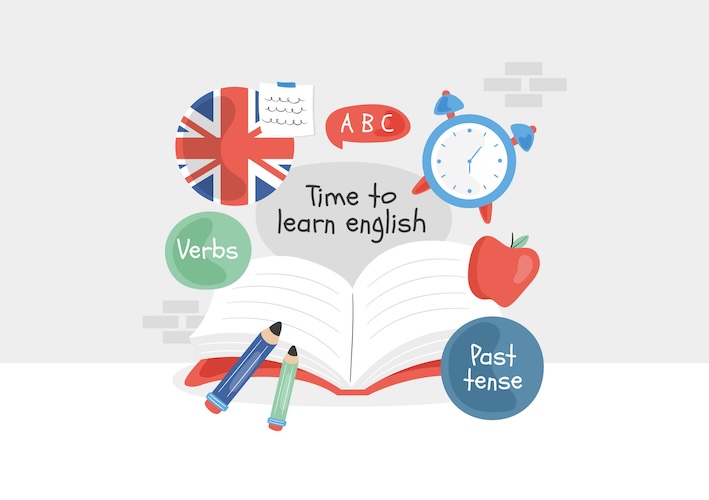
Participial phrases
Participial phrases (-ing/-ed phrases) add vivid detail to sentences by modifying nouns. Master these phrases to express actions and descriptions more elegantly while avoiding common errors.
Table of Contents
1.Present participial phrases
1.1Difference between Gerund and present participle
Although the present participle may seem a lot like gerund, it is vastly different consider this example
| Gerund | Present participle |
|---|---|
| I love climbing the mountains | Climbing the wall, he saw his reflection in the window |
| I practice speaking Chinese with my tutor | I am speaking chinese with my tutor |
While in this sentences the spelling is the same, gerund forms function as objects of the sentence and as nouns, while present participle represents actions
 Practice Examples
Practice Examples
My brother enjoys playing basketball after work.
Climbing the mountain, he reached for more rope.
Standing at the bus stop, Tom checked his watch.
1.2Present participial phrases form and meaning
Present participial phrases are verb phrases beginning with a present participle (-ing form) that function as modifiers in a sentence. These phrases add information about an action occurring simultaneously with the main action or describe the cause of the main action.
| Structure | Example | Function |
|---|---|---|
| Present Participle + Object | Reading her favorite book, Sarah lost track of time. | Shows an ongoing action performed by the subject |
| Present Participle + Complement | Running through the rain, the children arrived soaking wet. | Describes simoultaneous (happening at the same time as something else activity or state |
| Present Participle + Modifying Element | Singing softly in the garden, the birds welcomed spring. | Shows how, where, or when the action occurs |
 Practice Examples
Practice Examples
Fight/against time _____ , the rescue team worked through the night.
Feel/confident _____ , the student raised her hand to answer.
Hold/his breath _____ , the diver descended into the deep water.
1.3Present participial phrases placement and punctuation
Common Placement and Punctuation Patterns
| Position | Structure | Example |
|---|---|---|
| Beginning of sentence + comma | Present Participle Phrase, Main Clause | Hearing the noise, the dog barked. |
| After noun + no comma | Noun + Present Participle Phrase | The man carrying the boxes is my neighbor. |
| In the middle of the main clause, between commas | Main Clause + Present Participle Phrase + Rest of Main Clause | The students, realizing their mistake, corrected their answers. |
 Practice Examples
Practice Examples
She was holding her toy, while she ran out of the room.
She read the newspaper when she ate her breakfast.
The man checked his phone as he waited for the bus.
2.Past participial phrases
2.1Past participial phrases form and meaning
Past participial phrases begin with a past participle (-ed form or irregular past participle forms) and function as modifiers in a sentence. These phrases describe completed actions or resulting states that affect the nouns they modify, adding depth and precision to our descriptions.
| Structure | Example | Function |
|---|---|---|
| Past Participle + Object | Broken by the fall, the vase couldn't be repaired. | Shows completed action affecting the noun |
| Past Participle + Complement | Abandoned in the park, the car gathered dust. | Describes resulting state or condition |
| Past Participle + Modifying Element | Hidden beneath old papers, the letter remained undiscovered. | Indicates location or manner of the completed action |
 Practice Examples
Practice Examples
Break/to little pieces _____ , the toy car couldn't be repaired.
Cook/to perfection _____ , the meal received high praise from everyone.
Leave/on the desk _____ , the documents were found by the cleaning staff.
2.2Past participial phrases placement and punctuation
| Position | Structure | Example |
|---|---|---|
| Beginning of sentence + comma | Past Participle Phrase, Main Clause | Exhausted from the hike, the climbers rested. |
| After noun + no comma | Noun + Past Participle Phrase | The painting damaged in the flood was restored. |
| In the middle of the main clause, between commas | Main Clause + Past Participle Phrase + Rest of Main Clause | The old car, abandoned in the lot, gathered rust. |
 Practice Examples
Practice Examples
The car was abandoned in the desert, and it was covered in sand.
The report was based on recent data, and it presented surprising conclusions.
The laptop was infected with a virus, and it needed immediate repair.
Ready to Practice This Topic?
Join thousands of learners who are improving their English grammar skills every day with GrammarTrack.
Start Practicing Now
